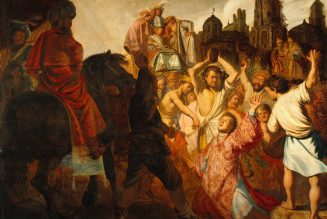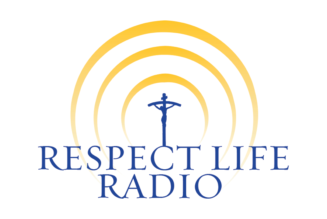The term “Christian nationalism” has sparked considerable debate online recently, especially in relation to its influence within political spheres and its distinction from mainstream Christian beliefs.
During a recent appearance on MSNBC, Politico national investigative correspondent Heidi Przybyla attempted to differentiate Christian (or other theistic philosophical) views from “Christian Nationalism” but unfortunately muddied the waters of a key distinction. Make no mistake, dangerous antisemitic, xenophobic and racist movements sometimes mask themselves under Christianity. But the moniker “Christian nationalism” is being applied to ideas that are normal, constitutive parts of Christianity.

Trying to articulate changes in the Republican party under House Speaker Mike Johnson, Przybyla wanted to explain how conservative evangelicals had found themselves backing business and media mogul Donald Trump, allied with what she described as a “more extremist element.”
Przybyla said during the interview, “The thing that unites them as Christian nationalists — not Christians, by the way, because Christian nationalist is very different — is that they believe that our rights as Americans, as all human beings, don’t come from any earthly authority.”
Przybyla’s comments on the source of human rights — that Christian nationalists derive rights from God rather than earthly authorities — touch on a venerable Christian philosophical tradition. For Christian nationalists, Przybyla concludes, “[Rights] don’t come from Congress, they don’t come from the Supreme Court. They come from God.”
Where do rights come from?
Christians do derive our rights from God. For the medieval Dominican theologian St. Thomas Aquinas, these derived rights codified in the natural law are understood as the rational creature’s participation in the eternal law. Any human being can know the basic precepts of the natural law: do good and avoid evil, that it’s wrong to murder, etc. It’s a framework that suggests every human being, endowed with reason, is naturally inclined to behave in ways that fulfill an intrinsic purpose and lead toward ultimate fulfillment.
If our rights are not grounded in a philosophy like the Catholic tradition’s understanding of the natural law, they can easily be taken away.
The natural law is not a set of mandates from an alien will but is understood from the deepest desires of our being, intrinsic to our nature as humans created by God. In living according to these inclinations, we align our actions, our lives, and even our communities with God’s providential plan. This alignment is crucial for understanding how Aquinas perceives the relationship between natural law and human law: a human law is just only if it accords with natural law.
The American understanding of rights
The American legal tradition understands that these rights are derived from the natural law. The Declaration of Independence states, “We hold these truths to be self-evident, that all men are created equal, that they are endowed by their Creator with certain unalienable Rights, that among these are Life, Liberty and the pursuit of Happiness.”
If our rights are not grounded in a philosophy like the Catholic tradition’s understanding of the natural law, they can easily be taken away. If these rights are distributed by governments, rather than absolute and inviolable, we will be subject to tyrants and despots.
“Man does not create himself,” Pope Benedict XVI reminded the members of Germany’s parliament during a speech. “He is intellect and will, but he is also nature, and his will is rightly ordered if he respects his nature, listens to it and accepts himself for who he is, as one who did not create himself.” This is not fideism or fundamentalism. And we shouldn’t let pundits label it as such.
Przybyla’s reductive portrayal of normative Christian ideas as inherently extremist or detached from authentic Christian theology misses the deeper philosophical and theological roots of Christian thought on law, rights and morality. Aquinas’ natural law theory invites a more inclusive and reasoned discourse, encouraging reflection on the foundations of our rights and laws that respects both human nature and divine revelation.









